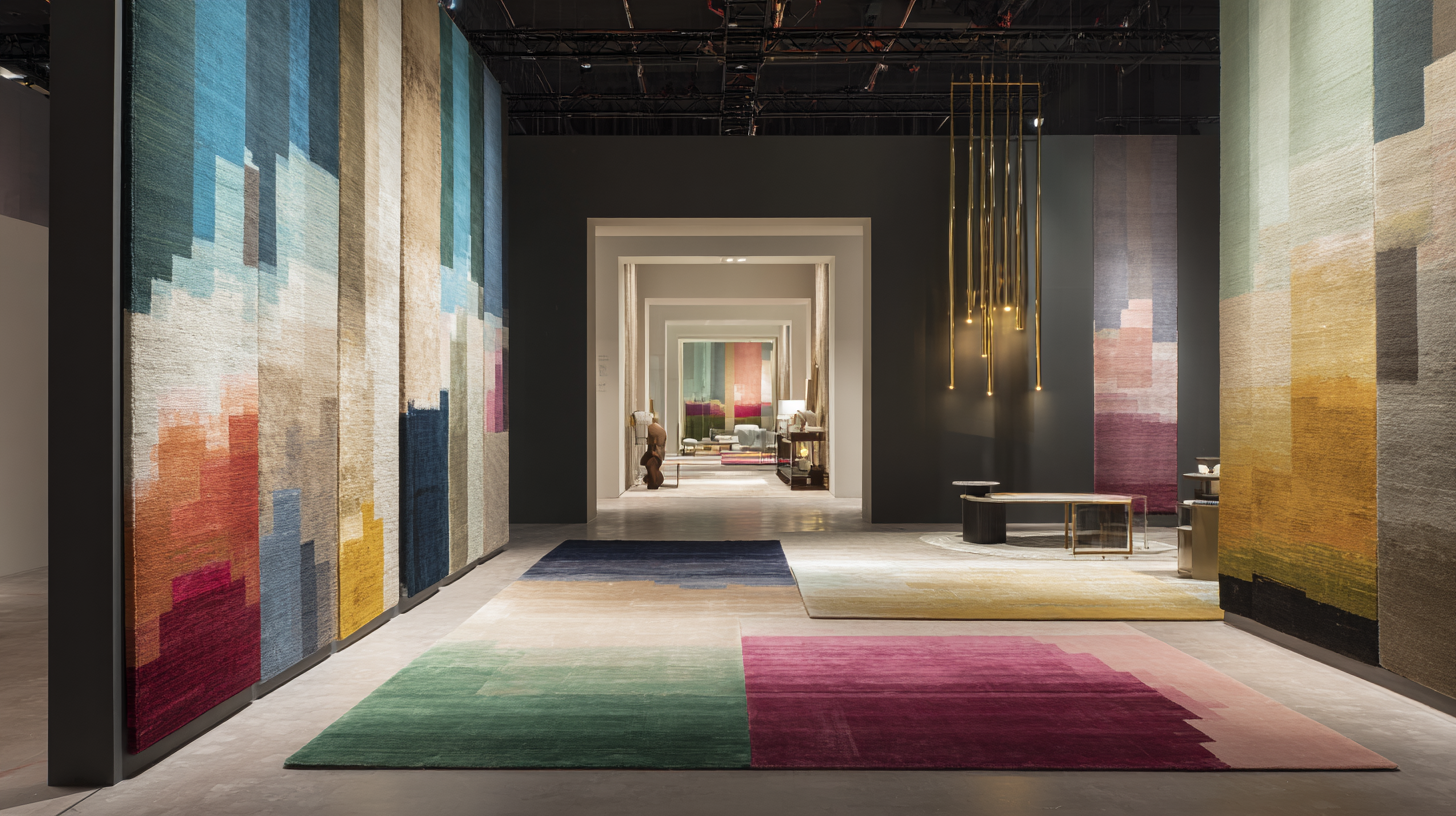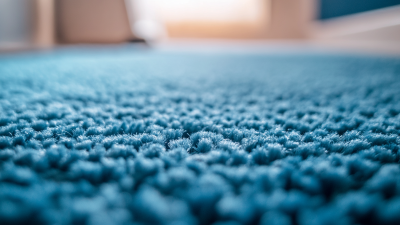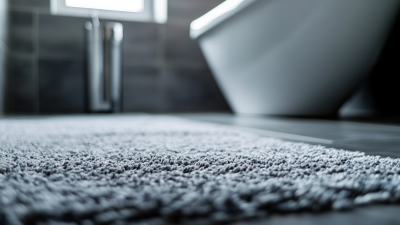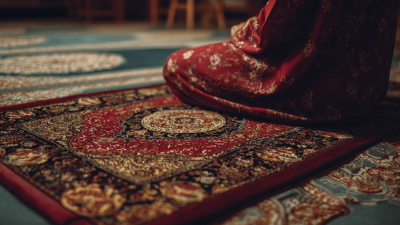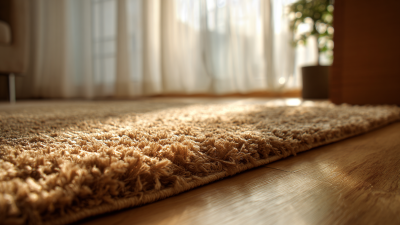
-
Home
-
About Us
-
Products
-
News
-
Blog
-
Contact Us
Leave Your Message

As the global market for carpets continues to evolve, the segment specifically focusing on "Carpet For Washroom" is experiencing notable growth, driven by factors such as increasing hygiene awareness and the rising demand for aesthetic enhancements in washroom spaces. According to a recent report by Market Research Future, the global carpet market is projected to reach USD 66.5 billion by 2025, with specialized applications like washroom carpets contributing significantly to this trend.
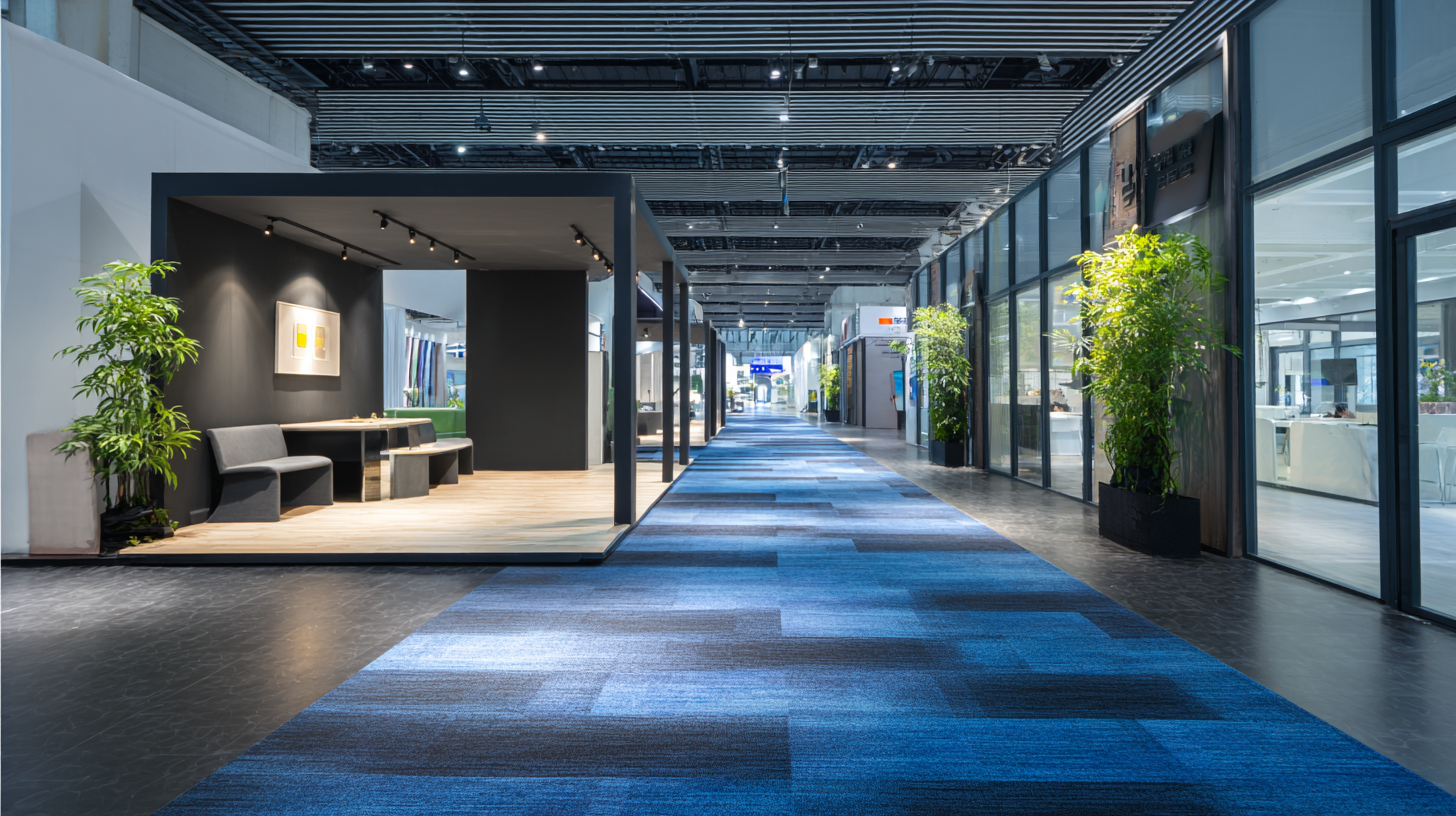
The 138th Canton Fair, set for 2025, serves as a pivotal platform for industry professionals to explore innovative designs, materials, and trends that cater to the unique needs of this niche market. Attendees can expect to gain insights into advancements in water-resistant fabrics, antimicrobial treatments, and eco-friendly options that align with evolving consumer preferences. This event promises to highlight the future trajectory of washroom carpets, showcasing the intersection of functionality and style in modern restroom environments.
At the 138th Canton Fair in 2025, one of the most compelling trends in the washroom carpet industry is the shift towards innovative designs and sustainable materials. As eco-consciousness continues to rise among consumers, manufacturers are increasingly focusing on carpets made from recycled and biodegradable fibers. According to a recent market report, the demand for sustainable textile products is expected to grow by 15% annually in the next five years, reflecting a significant consumer shift towards environmentally friendly options. This change is not only beneficial for the planet but also provides an opportunity for brands to differentiate themselves in a competitive market.
Design innovation is another key focus for washroom carpets, with trends leaning towards vibrant colors, textures, and patterns that enhance the overall ambiance of the washroom. The integration of smart technologies, like moisture-absorbent materials that prevent slipping and mildew, is also on the rise. A study by the Global Design Council revealed that nearly 70% of consumers prefer aesthetically pleasing washroom products, indicating that brands must balance functionality with style.
**Tips:** When choosing washroom carpets, look for those certified by environmental standards, such as OEKO-TEX or Global Recycle Standard. Additionally, consider carpets with antimicrobial properties for enhanced hygiene. Lastly, prioritize easy-to-clean designs, as maintenance is critical in high-traffic areas like washrooms.
The washroom carpet industry is on the cusp of significant transformation as we approach 2025. One of the key market trends shaping this sector is the increasing demand for sustainable materials. Eco-friendly carpets made from recycled fibers not only resonate with environmentally conscious consumers but also align with global efforts to reduce waste. This trend towards sustainability is being driven by both consumer preferences and regulatory standards that encourage the use of greener products.
Another notable trend is the integration of smart technology in washroom carpets. From antimicrobial properties to moisture-wicking capabilities, manufacturers are innovating with advanced materials to enhance hygiene and durability. The use of smart sensors to monitor cleanliness and alert users when maintenance is required is also gaining traction. As the industry evolves, these smart solutions are expected to become a standard feature, offering both convenience and improved user experience in commercial and residential settings.
At the 138th Canton Fair in 2025, the spotlight on technological advancements in carpet manufacturing processes will be a game changer for the washroom carpet industry. Recent reports from the International Textile Manufacturers Federation indicate that automation in carpet production can reduce labor costs by up to 30%, while increasing output efficiency by 40%. Through the integration of smart manufacturing technologies, companies are now able to produce carpets that not only meet aesthetic demands but also enhance functionality—such as improved water absorption and quick-drying capabilities—essential for washroom environments.
Moreover, innovations such as digital printing techniques and the use of sustainable materials are transforming the industry landscape. A study by the Carpet and Rug Institute reveals that 70% of consumers are more likely to purchase carpets made from eco-friendly materials, underscoring the importance of sustainable practices in manufacturing. With these advancements, manufacturers are able to offer customized designs while adhering to stringent environmental standards. As the market evolves, the integration of such technologies will not only elevate product quality but also cater to the growing consumer demand for sustainability and functionality in washroom carpets.
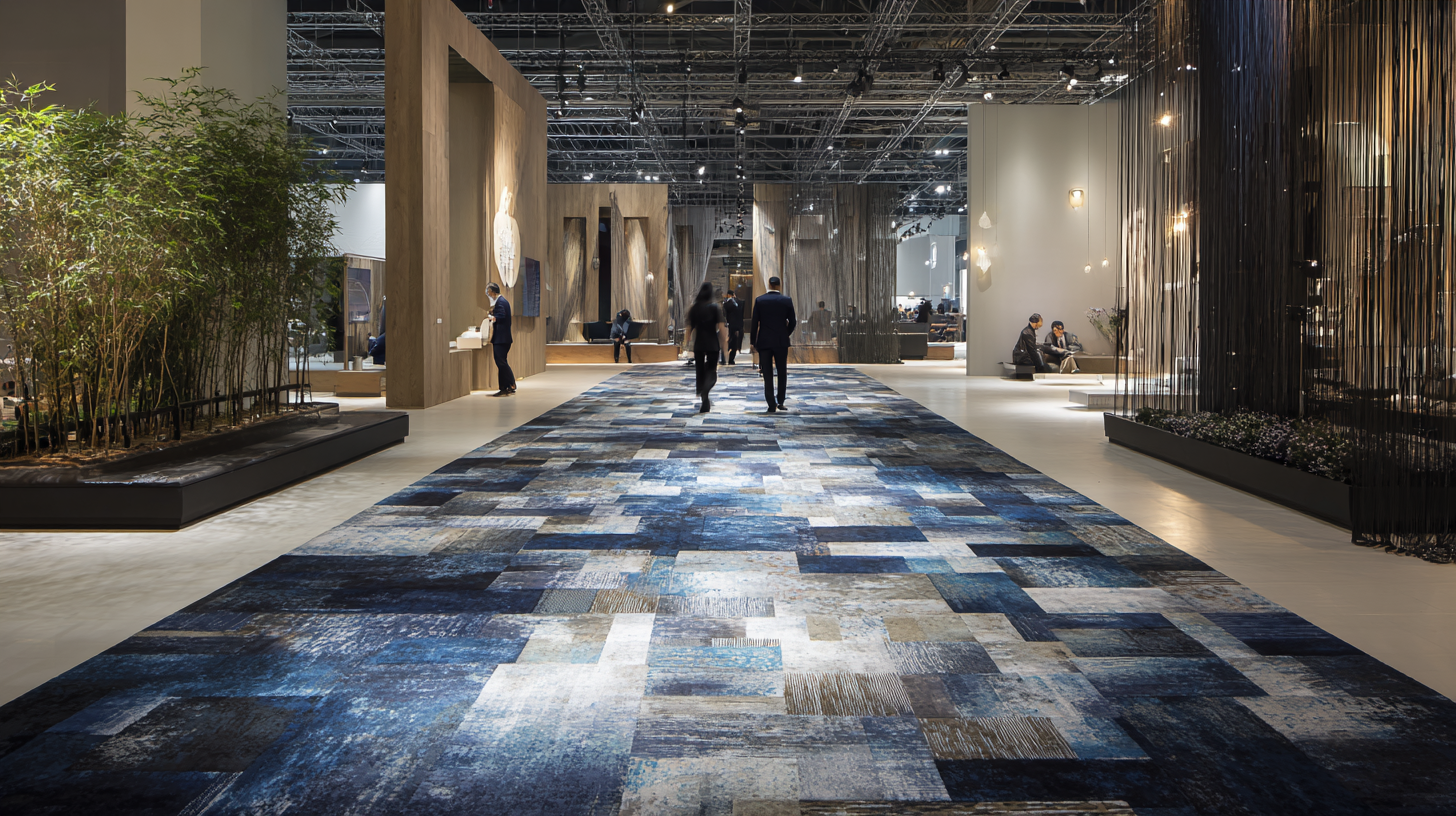
As we approach the 138th Canton Fair in 2025, the demand for washroom carpets reflects a significant shift in consumer preferences and expectations. Recent industry reports suggest that the global market for washroom carpets is projected to grow at a CAGR of 6% from 2023 to 2028, driven by increasing awareness of hygiene and aesthetics in personal spaces. Consumers are increasingly opting for carpets that not only provide comfort but also feature antimicrobial properties, enhancing their appeal in both residential and commercial settings.
Moreover, sustainability has emerged as a crucial factor influencing consumer choices. According to a survey conducted by the Carpet and Rug Institute, 72% of consumers prefer environmentally-friendly products, prompting manufacturers to innovate with biodegradable materials and sustainable production methods. The industry's adaptation to these preferences is evident at trade events like the Canton Fair, where exhibitors are showcasing eco-friendly washroom carpet options. The emphasis on customization, alongside durability and ease of cleaning, aligns with the evolving demands of consumers seeking practicality without compromising on style.
| Dimension | Trend / Insight | Consumer Preference | Demand Level (1-10) |
|---|---|---|---|
| Material Quality | Increased demand for eco-friendly materials | High | 9 |
| Design Trends | Minimalist and modern designs are preferred | Medium | 6 |
| Durability | Focus on long-lasting and easy-to-clean products | High | 8 |
| Color Preferences | Natural tones are becoming increasingly popular | Low | 4 |
| Size Variability | Demand for custom sizes has risen | Medium | 7 |
| Technology Integration | Smart carpets that monitor hygiene levels | Emerging | 5 |
The washroom carpet market is poised for significant evolution as we look toward 2025, with challenges and opportunities emerging alongside changing consumer preferences and industry trends. According to a recent market analysis by Grand View Research, the global market for washroom carpets is expected to grow at a compound annual growth rate (CAGR) of 4.5% from 2023 to 2028. This growth can largely be attributed to an increased focus on hygiene and cleanliness in public and commercial spaces, which is driving demand for carpets that are not only aesthetically pleasing but also functional and easy to maintain.
Despite this optimistic outlook, the industry faces challenges, such as competition from alternative flooring options and sustainability concerns. A report by Technavio indicates that eco-friendly materials are becoming a significant preference among consumers, with approximately 30% of buyers prioritizing sustainable products in their purchasing decisions. This shift necessitates innovation in material sourcing and production processes for carpet manufacturers, highlighting a critical opportunity for those willing to adapt and invest in green technologies. Failing to address these changing dynamics may hinder growth for businesses in this sector as they prepare for the upcoming 138th Canton Fair and beyond.
